| |
|
|
|
|
|
|
| |
|
Editor's note
|
|
BlackRock, the world’s biggest money manager, recently made headlines when it urged companies that wanted its billions to make the world a better place. That may strike some as a quaint notion from a bygone era, well before the age of “profit maximization.” But to Marina v. N. Whitman, the idea is hardly old-fashioned. The University of Michigan business professor explains why companies in the ‘50s and ‘60s could “afford” to be good corporate citizens by investing in their workers and communities. Today’s record profits mean they should do so again, she argues.
The Trump administration wants to replace some of the grocery subsidies low-income Americans get through SNAP – the modern version of food stamps – with packages of pasta, peanut butter and other nonperishable foods. As political scientist Matthew Gritter explains, if these “harvest boxes” ever materialize, it would be the first time that the federal government has tried anything like it since the Reagan-era bid to give away processed cheese.
Yesterday’s indictments of 13 Russian nationals may have you wondering if this has happened before, how bots could have influenced the 2016 campaign – and if it is a good idea to crack down on social media
platforms. Our scholars tell you what you need to know.
|
Bryan Keogh
Economics + Business Editor
|

|
|
Top stories
|
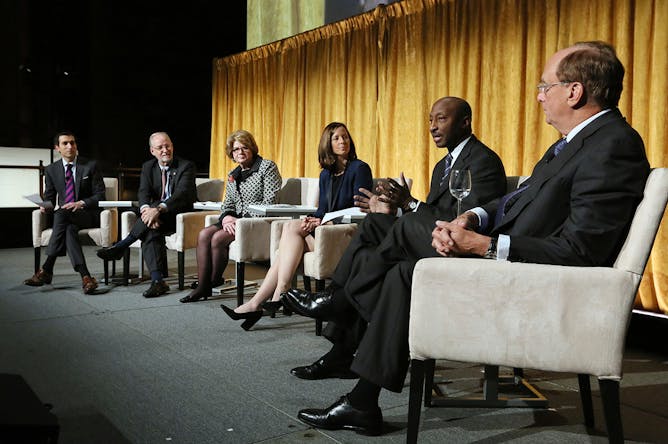
Larry Fink, right, shared a stage with several of the CEOs he urged to spend more time doing good.
Stuart Ramson/AP Images for The Women's Forum of New York
Marina v. N. Whitman, University of Michigan
Companies are flush with cash and profits and soon will have even more once the tax cut takes effect. So they can afford to be good again.
|
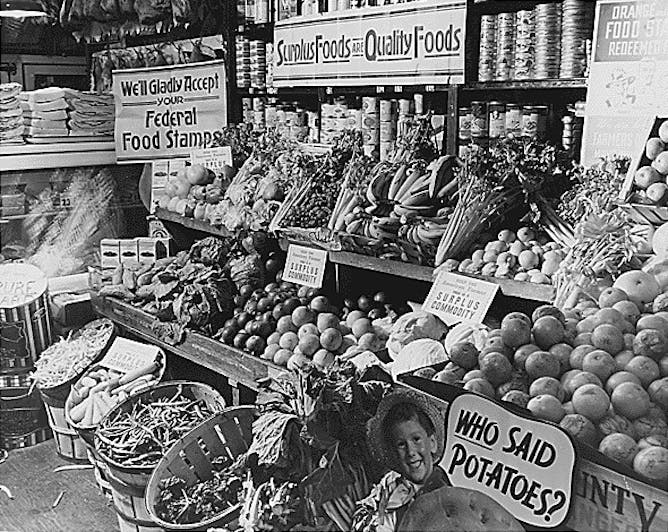
The first food stamps program, created amid the Great Depression, lasted four years.
Franklin D. Roosevelt Presidential Library and Museum
Matt Gritter, Angelo State University
SNAP and its precursors have weathered plenty of efforts to shrink the safety net. Its decades of bipartisan support make it likely to survive this one.
|
Russia investigation
|
-
Paul Levinson, Fordham University
Thirteen Russians were charged Friday with using social media to interfere with the 2016 election. A media expert explains why this should not lead to government regulation of social media.
-
Emilio Ferrara, University of Southern California
In addition to the meddling alleged in the new Mueller indictments, about one in every five election-related tweets was generated by software, not humans.
-
Eric Lohr, American University
Americans are shocked Russia meddled in our election. But there are centuries of precedent – and, at times, it’s been the US meddling.
|
|
Florida shooting
|
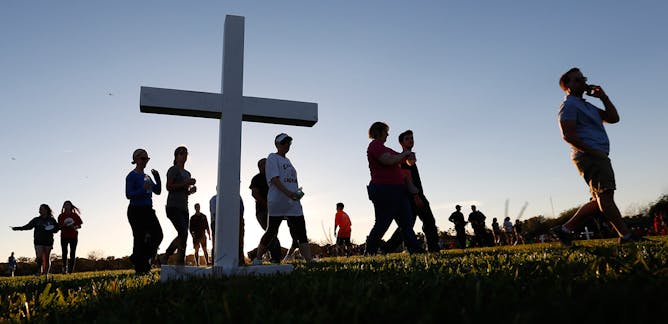
Brian DeLay, University of California, Berkeley
Advocates of gun control may despair in the wake of mass shootings like the one in Parkland, Florida, but the history of government support for the gun industry shows Americans have more sway than they think.
| |
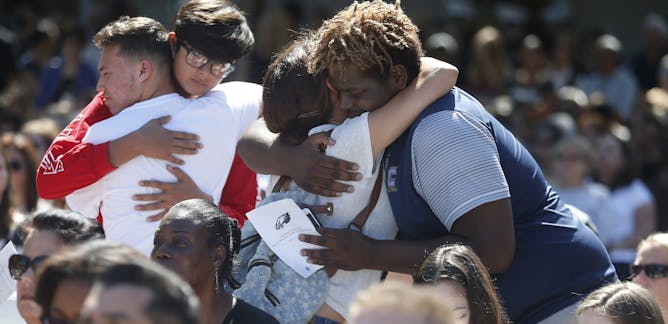
Elizabeth Englander, Bridgewater State University
While politicians argue endlessly over gun control, here are 10 practical ways the rest of us can work to prevent school shootings.
|
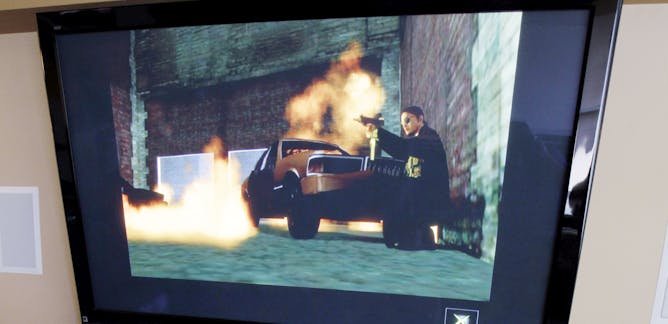
Christopher J. Ferguson, Stetson University
For years, there have been questions about research showing connections between playing violent video games and aggressive behavior.
| |
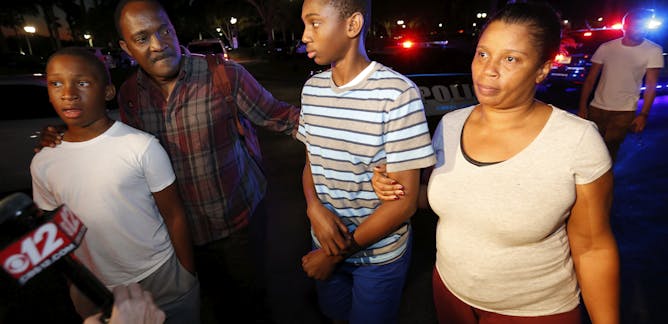
Daniel J. Flannery, Case Western Reserve University
When children learn about news like the deadly school shooting in Florida, a logical question for them to ask is: Will the same thing happen to me?
|
|
|
Ethics + Religion
|
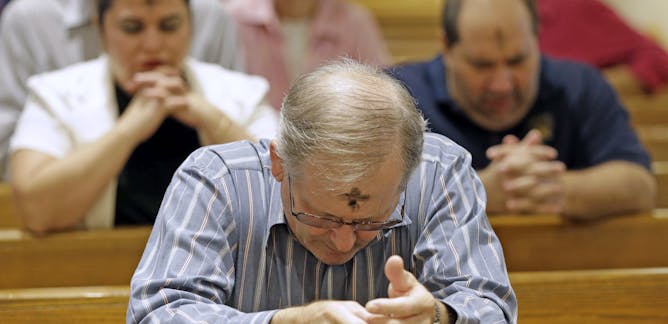
Michael Laver, Rochester Institute of Technology
Churches started to use ashes early as the ninth century as a symbol of repentance. In 1091, Pope Urban II ritualized their use to mark the beginning of Lent. Today, churches provide 'ashes to go.'
| |
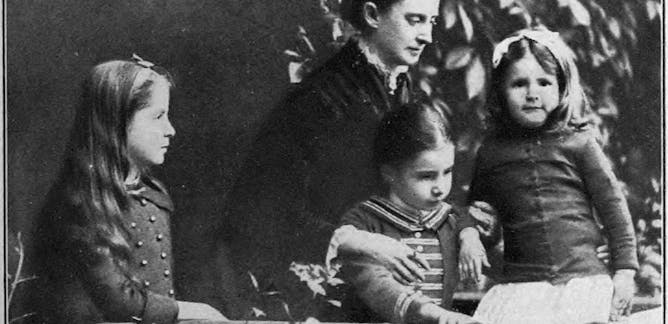
Richard Gunderman, Indiana University
It was aboard a steamship that Mark Twain first laid eyes on a photograph of Olivia Langdon, known as Livy. It was love at first sight. In their marriage of 34 years, they remained deeply devoted.
|
|
|
Politics + Society
|
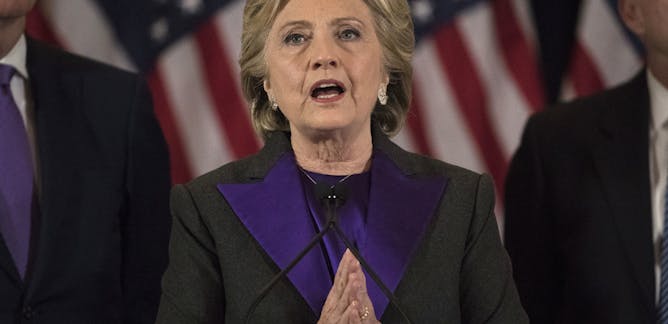
Richard Gunther, The Ohio State University; Erik C. Nisbet, The Ohio State University; Paul Beck, The Ohio State University
Yes, votes are cast based on many factors. But a new survey and analysis suggests that belief in fake news could have been decisive during the 2016 election.
| |
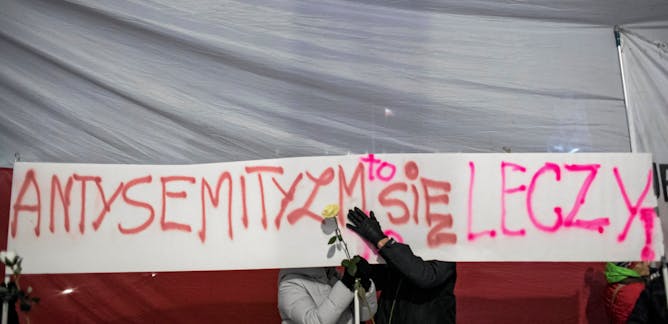
Geneviève Zubrzycki, University of Michigan
Seventy years after the end of World War II, a battle is taking place over Polish collective memory.
|
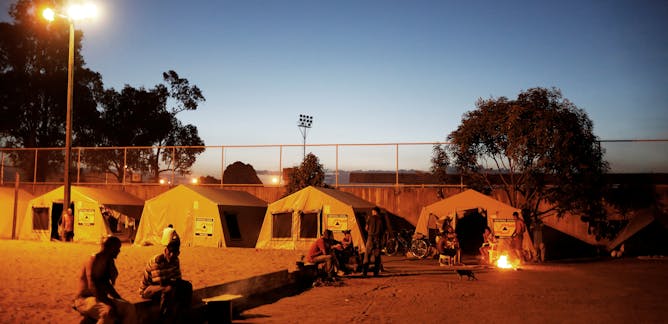
Robert Muggah, Pontifical Catholic University of Rio de Janeiro (PUC-Rio)
Since 2000, 8.8 million Brazilians have been displaced by disaster, development and crime, new data shows. Now Venezuelan migrants are pouring into the country. Still, Brazil has no real refugee plan.
| |
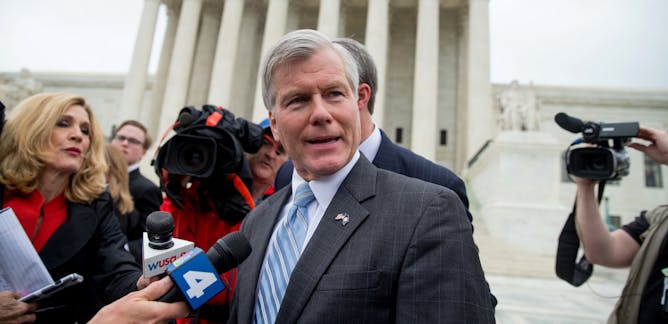
Peter J. Henning, Wayne State University
A legal scholar looks at the new and narrowed definition of bribery by the US Supreme Court. In the future, will politicians doing favors for donors and friends ever be prosecuted for corruption?
|
|
|
Health + Medicine
|
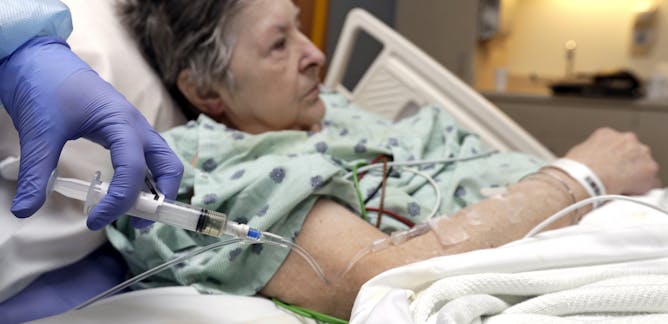
Laura Haynes, University of Connecticut
Anyone who's had the flu can attest that it makes them feel horrible. But why? What is going on inside the body that brings such pain and malaise? An immunologist explains.
| |

Shervin Assari, University of Michigan
Love may make the world go round, but sex keeps it going. There's been a lot of discussion in recent months about the horrors of bad sex. But it's important to remember that good sex is good for us.
|
|
|
Science + Technology
|
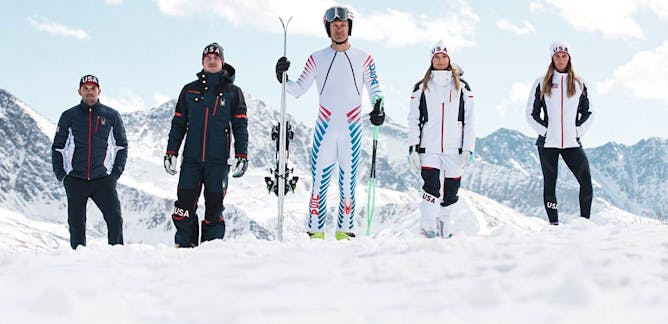
Susan L. Sokolowski, University of Oregon
No longer in fanciful coats or button-down shirts with neckties, Olympians compete in uniforms specially designed and engineered for maximum performance.
| |
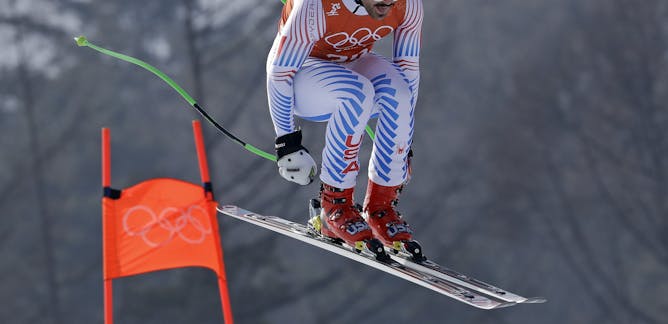
Marc Zupan, University of Maryland, Baltimore County
Highly engineered composite materials let skis ride smoothly, carve neatly and turn quickly – for top athletes and regular consumers alike.
|
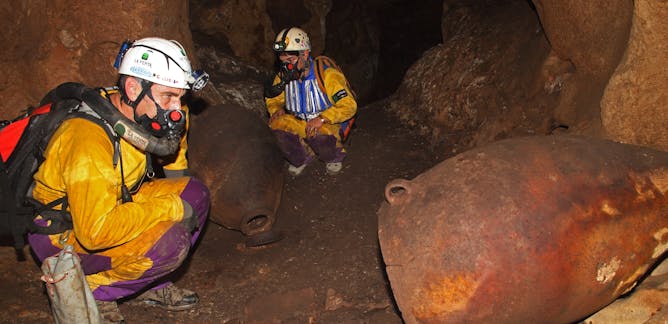
Davide Tanasi, University of South Florida
Growing grapes and making wine come with a lot of implications about a culture's capabilities. Apparently, Sicily of 6,000 years ago was more sophisticated than archaeologists had given it credit for.
| |
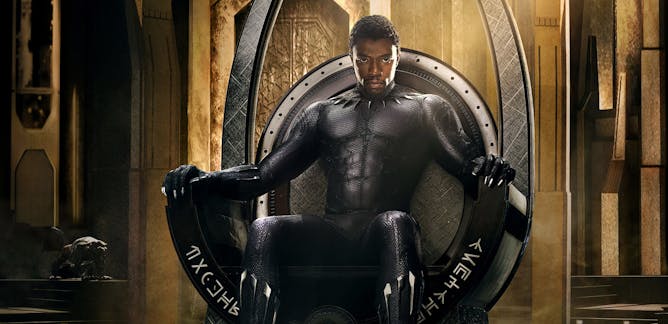
Clifford Johnson, University of Southern California – Dornsife College of Letters, Arts and Sciences
Seeing black lead characters who are accomplished scientists could be just the thing to help inspire future generations to follow in their footsteps.
|
|
|
Arts + Culture
|
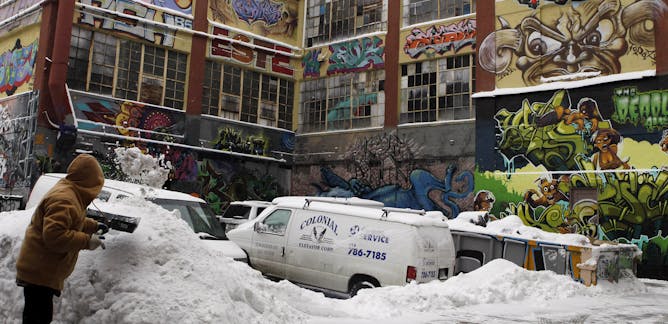
Leila Amineddoleh, Fordham University
A judge in New York City just awarded graffiti artists US$6.7 million after a developer whitewashed their murals. On the surface, it seems like a huge victory for street artists. But could it backfire?
| |
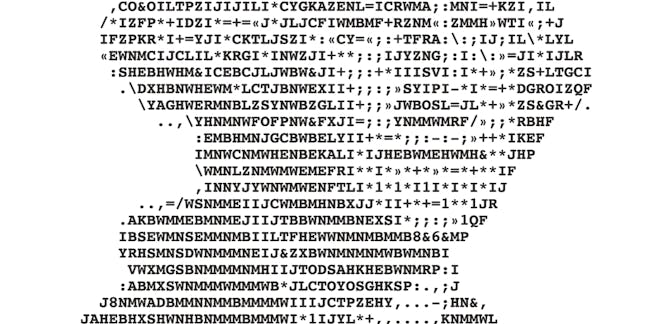
Andrew Elfenbein, University of Minnesota
Reading something that sows doubt about a widely agreed-upon fact – even the election of George Washington as president – can have a profound effect.
|
|
|
Environment + Energy
|
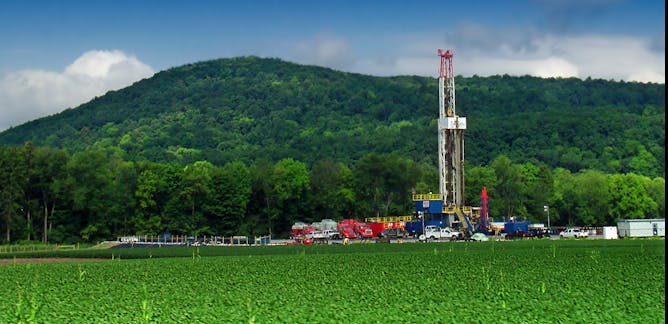
Kate Konschnik, Duke University; Sarah Marie Jordaan, Johns Hopkins University
Natural gas is widely viewed as a clean fuel, but methane, its main component, is a powerful greenhouse gas. Two experts propose a plan for detecting and cutting methane leaks across North America.
| |
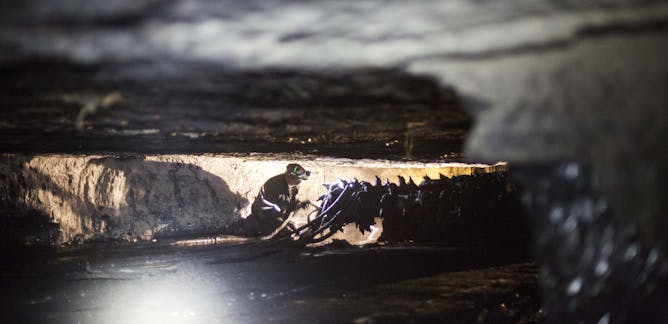
Anna Allen, West Virginia University; Carl Werntz, West Virginia University
A recent study found the largest cluster of advanced black lung disease ever recorded among coal miners in central Appalachia. Two doctors who treat black lung patients explain how miners contract it.
|
|
|
| |
| |
| |
| |
| |
| |
|
|
|
|
|
|
| |